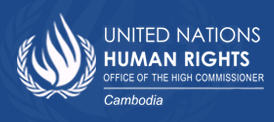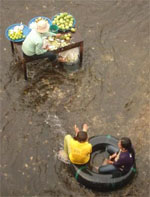
| Cambodia and the Covenant on Economic, Social and Cultural Rights This page provides information relating to the forthcoming consideration by the Committee on Economic, Social and Cultural Rights in Geneva of Cambodia's record on implementing the International Covenant on Economic, Social and Cultural Rights since 1992. |
ICESCR Reporting Timeline Timeline How the procedure will work 01 August 2008: Deadline for submission of state report by the Government The report will be translated in the six UN languages and distributed to the member of the committee. Submitted on: 31 Oct 2008 Click here to download the report Mid-October 2008: Initial NGO submissions for pre-session due Download NGO Submissions: COHRE November 2008: Pre-sessional working group This is a preparatory meeting at which the Committee members will formulate a set of initial questions based on the State report and NGO submissions. If the Government does not submit a report, the questions will be based on information from NGOs and UN agencies. Download List of Questions here Mid-February 2009: Deadline for the Government's written responses to the list of questions The responses will be translated and submitted to the Committee members as a UN document. The responses are an opportunity for the Government to update the information in its State report. End-April 2009: NGO parallel report due This provides the Committee with an alternative view of the situation. May 2009: Formal Committee Session A Cambodian Government delegation will travel to Geneva to discuss its report with the Committee members. NGOs can also brief the Committee. At the end of the session, the committee will issue concrete recommendations for the Government. Summary Record 11 May 2009 2009 - 2014: Government implementation of Committee's recommendations 1 June 2014: Cambodia next periodic report due 2015: Deadline for archievement of Cambodia's Millennium Development Goals |
|
 |
What is the Covenant on Economic Social and Cultural Rights? The International Covenant on Economic, Social and Cultural Rights (ICESCR) was finalized in 1966 and entered into force in 1976. It is a binding treaty which gives full legal force to the economic, social and cultural rights set out in the Universal Declaration of Human Rights. It is therefore the counterpart to the International Covenant on Civil and Political Rights which does the same with regard to the civil and political rights in the Declaration. Economic, social and cultural rights include: right to work, Including just working conditions and trade union rights; |
|
| right to social security; right to family; rights to an adequate standard of living, including food and housing; right to health; right to education; right to culture, including indigenous cultural rights. What does the Covenant mean for Cambodia? Cambodia became a party to the Covenant in August 1992. From this date, the Royal Government committed itself of a progressive process of implementing the rights set out in the Covenant for the benefit of everyone living in Cambodia. The Covenant is guaranteed in Cambodian law by article 31 of the Constitution. Economic, social and cultural rights cannot be fully implemented overnight: the realization of these rights requires time and resources which are limited in a country like Cambodia. Therefore the Covenant requires the Government to make steady progress over the years towards the full realization of the rights for everyone. The implementation process is linked to Cambodia's national development strategy and its programme to meet the Millennium Development Goals by 2015. What is the Committee on Economic, Social and Cultural Rights? The Committee meets in Geneva and normally holds two sessions per year, consisting of a three-week plenary and a one-week pre-sessional working group. The Committee also publishes its interpretation of the provisions of the Covenant, known as general comments. The Office of the United Nations High Commissioner for Human Rights (OHCHR) acts as the secretariat for the Committee and also provides technical assistance to States to engage with the reporting process. What is treaty reporting? The aim of this process is not to criticize the Government, but to provide constructive advice on ways in which the Government can make better progress towards ensuring that all Cambodians can enjoy the rights set out in the Covenant. The Committee does not rely solely on information provided in the Government's report to make its assessment. It is also open to submissions from national and international non-governmental organizations (NGOs) as well as United Nations agencies, such as WHO and ILO. |
||
| Cambodia's reporting under the Covenant Reporting to the Committee is an opportunity of the Government to present the steps it has taken to develop Cambodia for the benefit of its citizens and to seek advice from the Committee's experts on areas where more progress is required. Cambodia's initial report was due on 1 June 1994. It should subsequently have reported in 1999 and 2004. These reports are all overdue. OHCHR's Cambodia Office twice assisted the Government in preparing draft reports for the Committee in 1998-9 and again in 2002-5. These reports unfortunately were never finalized. The Committee in Economic, Social and Cultural Rights has now decided that it will consider the situation in Cambodia at its forty-second session in May 2009 and has requested the Government submit its initial, second and third reports in a single report by 1 August 2008. It has indicated that it will consider Cambodia's record whether or not the Government submits its report. A delegation from the Government will be invited to attend the session in Geneva in order to discuss the report through what is called a "constructive dialogue". Can NGOs and other civil society representatives participate in the process? In 2002, in anticipation of a report by the Government, OHCHR supported Cambodian NGOs in preparing a report for the Committee on Economic, Social and Cultural Rights in Cambodia. |
||